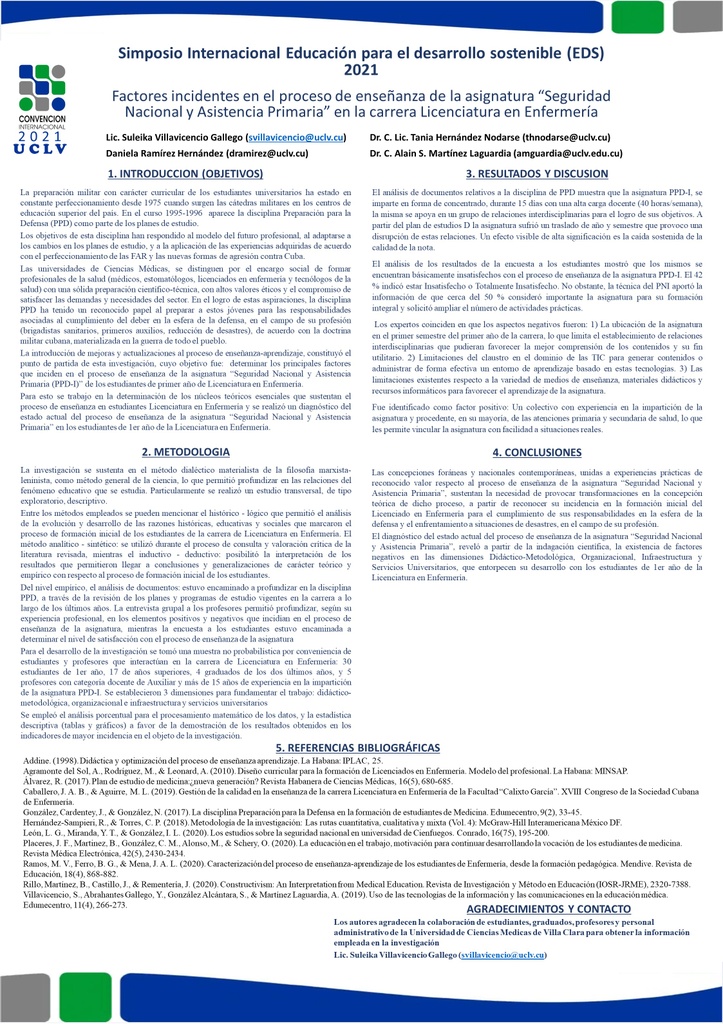Executive Secretary

Simposio Internacional Educación para el desarrollo sostenible (EDS) 2021

Resumen
La actualización e introducción de mejoras al proceso de enseñanza-aprendizaje de la Educación Superior, constituyó el punto de partida de esta investigación, cuyo objetivo fue: determinar los principales factores que inciden en el proceso de enseñanza de la asignatura “Seguridad Nacional y Asistencia Primaria” de los estudiantes de primer año de Licenciatura en Enfermería. La investigación ofrece un estudio transversal, exploratorio, que se sustenta en el método dialéctico materialista de la filosofía marxista-leninista, lo que favoreció el análisis e interpretación de la problemática que se estudia; posee un enfoque mixto, toda vez que combina de manera coherente métodos y técnicas cualitativas y cuantitativas. Para cumplir con el objetivo previsto se aplicaron métodos del nivel empírico, tales como: análisis de documentos, entrevista grupal, encuesta, observación y triangulación de fuentes, vinculados al estudio y utilización de variados métodos del nivel teórico. La profundización en el proceso de enseñanza de la asignatura “Seguridad Nacional y Asistencia Primaria”, permitió determinar los principales factores que inciden de forma negativa en dicho proceso, a partir de la evaluación y seguimiento de las dimensiones: Didáctico-Metodológico, Organizacional, Infraestructura y Servicios Universitarios. Se recomienda, construir propuesta de solución al problema identificado y efectuar su validación en la práctica pedagógica.
Abstract
The updating and introduction of improvements to the teaching-learning process of Higher Education, constituted the starting point of this research, whose objective was: to determine the main factors that affect the teaching process of the subject “National Security and Primary Assistance” for first-year Nursing Bachelor students. The research offers a cross-sectional, exploratory study, which is based on the dialectical materialist method of Marxist-Leninist philosophy, which favored the analysis and interpretation of the problems under study; has a mixed approach, since it coherently combines qualitative and quantitative methods and techniques. To meet the intended objective, methods of the empirical level were applied, such as: document analysis, group interview, survey, observation and triangulation of sources, linked to the study and use of various methods of the theoretical level. The deepening in the teaching process of the subject "National Security and Primary Assistance", allowed to determine the main factors that negatively affect this process, from the evaluation and monitoring of the dimensions: Didactic-Methodological, Organizational, Infrastructure and University Services. It is recommended to build a solution proposal to the identified problem and carry out its validation in pedagogical practice.
Sobre el ponente

Lic. Suleika Villavicencio Gallego

Discussion






